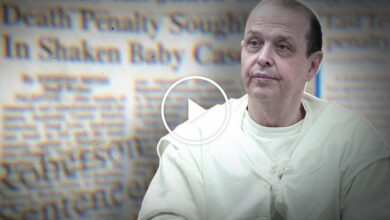
By Sunday, the board provided the answer itself, by way of another headline: “Turn down the heat, let in the light.”
Everyone in the country was shocked by the gunshots — I was at a wedding, where you could follow the breaking of the news gasp by gasp — but perhaps nobody more so than the man whose ear they grazed. It must take quite the jolt to get Trump to betray his every political instinct and, at least briefly, “de-escalate rather than inflame,” as the board commends him for doing in the attack’s aftermath.
Indeed, the board writes (prays, really, considering some of the incendiary statements of Trump’s allies) that “this brush with individual mortality and national calamity is an unsought, but golden, opportunity for Mr. Trump to help cool the nation’s political fevers and set a new direction. It offers him a chance to show that there is a more constructive path.” It urges the rest of us to join him there.
Zoom in a bit, and what else does this near-disaster tell us?
A handful of our columnists wrote short analyses on various aspects of the attack. Among them is Gene Robinson, who frames the shooting (which killed one spectator and critically injured two more) as yet another instance of the AR-15’s horrible carnage.
Molly Roberts writes on social media’s messy shaping of the post-attack narrative: “What’s most fascinating about this episode, however, isn’t just the collective effort to establish what happened. It’s the matching attempt to determine what it meant — in real time.”
Ramesh Ponnuru takes on the language of physical violence, David Ignatius the vulnerability tech brings with it and Megan McArdle how lucky the country is. One of the most enlightening angles is David Von Drehle’s account of a new weakness revealed by a struggling Secret Service’s failure to forestall this shooting — which pairs well with Colby King’s column, in which he soberly reflects on his time carrying a gun in the service of U.S. national security.
And, oh yes, the dirty, grubby politics of it all. We can all pause for a moment of national unity and hopefully prolong some of those good feelings. But meanwhile, on Sunday, Karen Tumulty assessed how the attempt on Trump’s life had upended the race.
Her takeaway: Biden is stuck in a paradox, having run (and won) last cycle on lowering the temperature in politics, but now needing to paint his opponent as a menace “to the very soul of this country.”
As Karen writes, “there could hardly be a worse moment for Biden to be compelled to redraw his strategy against Trump.”
By Monday afternoon, we are already plunging back into the fierce competition of an election year. The Republicans’ convention kicked off today, and just as of press time, Trump announced he had selected Sen. J.D. Vance as his running mate — more on that tomorrow. For today, just note, as the board does, that in the moments after the shooting, Vance was one of the ones saying that Biden’s words “led directly” to the assassination attempt.
The race is on. Same as it ever was?
Chaser: Jen Rubin hopes the country can reject violence and turn this contest, finally, into one of ideas. In that arena, Biden’s plans are the clear winner.
Bonus chaser: You can follow our columnists’ live convention commentary here beginning at 4 p.m. Eastern on Tuesday.
From Catherine Rampell and Aden Barton’s column on this summer’s delicious drop in fast-food prices — a triumph over corporate greed at last?
Well, no. It is just the McMarket. The same invisible hand that lifted the price of those nuggies is the one crashing them back down in a vat of ranch.
Catherine and Aden explain that fast-food prices rose after the pandemic not because corporations were extra greedy (corporations are always greedy) but because demand exceeded supply.
People had a lot of savings to spend clogging their arteries, but that money has since dried up. Demand is down again, and ECON 101 dictates that prices follow. Or, as Catherine and Aden put it, “this recent up-and-down pricing roller coaster confirms an old adage: The best cure for high prices is high prices.”
More politics
Imagine entering China as a foreigner and spending some time there on a visit, during which authorities decide — unbeknownst to you — that, actually, you’re here to stay. You show up to the airport and cannot leave.
This is an “exit ban,” levied not usually because of your objectionable political activity but because you have “only the most tenuous relationship” to a Chinese company involved in a debt dispute, author Anne Stevenson-Yang writes in an op-ed explaining why she’s afraid of returning to the country she lived in for a quarter-century.
She just wants to inter half her husband’s ashes with his parents’ remains in Beijing. “It feels as though a family matter ought to be sheltered from the political winds chilling China’s relationship with the West,” she writes, “but the Chinese government has long viewed entering or leaving the country as a privilege that only it can bestow.”
Smartest, fastest
- Karen Attiah writes that Biden is failing the survivors of the 1921 Tulsa race massacre — and Black voters writ large — by not opening a federal investigation into the hate crime.
- Biden should remove the restrictions that keep Ukraine from striking back at the air bases inside Russia being used to kill Ukrainian civilians, Josh Rogin writes.
- Kathleen Parker’s vote for the greatest show on earth? America’s Sweethearts: Dallas Cowboys Cheerleaders.
It’s a goodbye. It’s a haiku. It’s … The Bye-Ku.
Have your own newsy haiku? Email it to me, along with any questions/comments/ambiguities. See you tomorrow!
Read More


